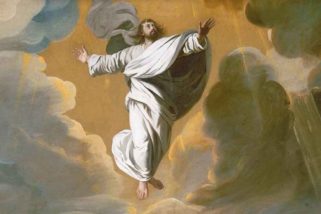I am still teaching the science and philosophy of free will this June (that class starts next week; you can register here). But now my courses for July and August are also open for early registration (and there is a limit on how many students I take on per class, so they might fill up; I will offer them again next year).
By Richard Carrier
For July (and this in preparation for August) I will be teaching a course on historical methods: Thinking Like a Historian: Historical Methods, Practice and Theory (details and registration here). Description:
Learn how to question and investigate claims about history. Study not only the logic of historical reasoning and argument, but also a lot of the practical tips and tricks real historians employ to test and check claims. Learn the particular skills of skeptical and critical thinking about history. Primary topics: Best practices among historians; historical methods as modes of reasoning (both criteria-based and Bayesian); examples of flawed reasoning and bad arguments in peer reviewed history journals and monographs (and how to spot them as a layperson); and what to do to critically examine a claim using both immediate heuristics and procedures for more labor-intensive inquiry.
The required course text we will be working through chapter by chapter is Proving History: Bayes’s Theorem and the Quest for the Historical Jesus, but I will be providing additional readings and discussion across several fields and subjects in history (the focus won’t be wholly or even mostly on Jesus; that will just be a working example).
-:-
For August (and this will benefit from having taken the preceding course in July) I will be teaching a course on the historicity of Jesus: Questioning or Defending the Historicity of Jesus (details and registration here). Description:
This course discusses the best arguments for and against the historical existence of Jesus (as the putative founder of Christianity), and we will proceed step-by-step through ways to approach them and evaluate them. Working from the first peer reviewed academic book arguing Jesus might not have existed, taught by the author himself, you will learn how to distinguish good arguments from bad, and about the background and context of the origins of Christianity as a whole. This is the best opportunity to ask Dr. Carrier, who holds a PhD in ancient history from Columbia University, all your questions about his controversial research and the historical(?) figure of Jesus. Main issues to cover: understanding the complex background to the origins of Christianity (unit 1, OHJ chs. 4, 5, & 7); comparing the competing theories of how and why Christianity began (unit 2, OHJ chs. 1, 2, & 3); understanding the Gospels and Acts as mythology and whether historical facts about Jesus can be extracted from them (unit 3, OHJ chs. 6, 9, & 10); and exploring the arguments for and against evidence for a historical Jesus in the authentic Epistles of Paul and literature outside the New Testament (unit 4, OHJ chs. 8, 11, & 12).
The required course text we will be working through chapter by chapter is On the Historicity of Jesus: Why We Might Have Reason for Doubt, although I will be providing additional readings (such as from defenders of historicity). That is expected to be available by the end of June, and you might want to order it as soon as that, so as to be assured of having it in time for the course (I will announce on this blog as soon as the book can be ordered or pre-ordered). Unfortunately there will not be an electronic copy in time for August, but I have an option for the visually impaired (so if you can’t read a print book, just write to me once you register, to inquire about an alternative).
-:-
I should note that technically mine is not “the first peer reviewed academic book arguing Jesus might not have existed” if you include Thomas Brodie’s recent book from the same press, Beyond the Quest for the Historical Jesus: Memoir of a Discovery, although that is actually a memoir of how he came to that conclusion, and not an organized argument for it (e.g. he does little to address defenses of historicity or offer an alternative theory of the origin of Christianity). See my review.





